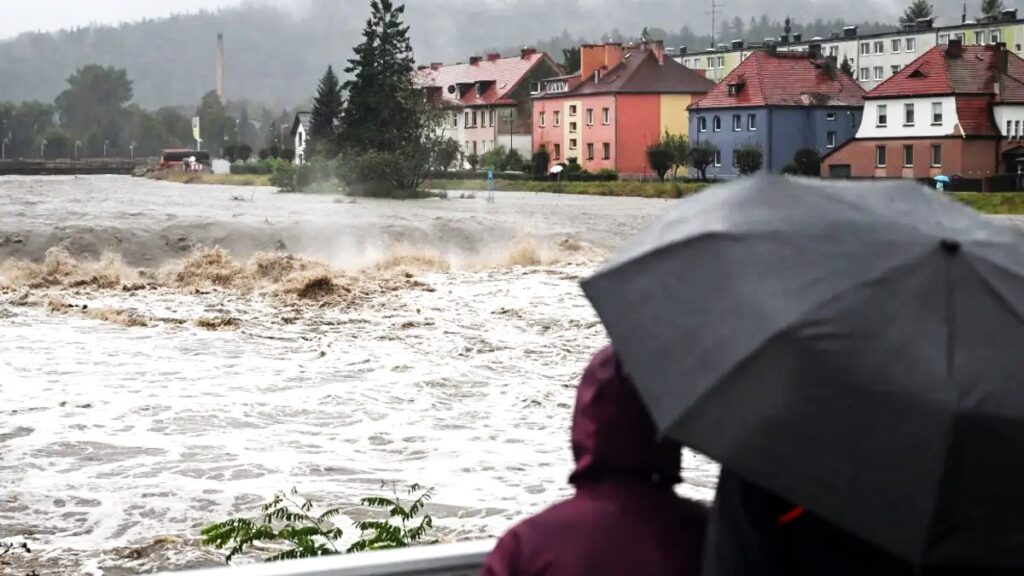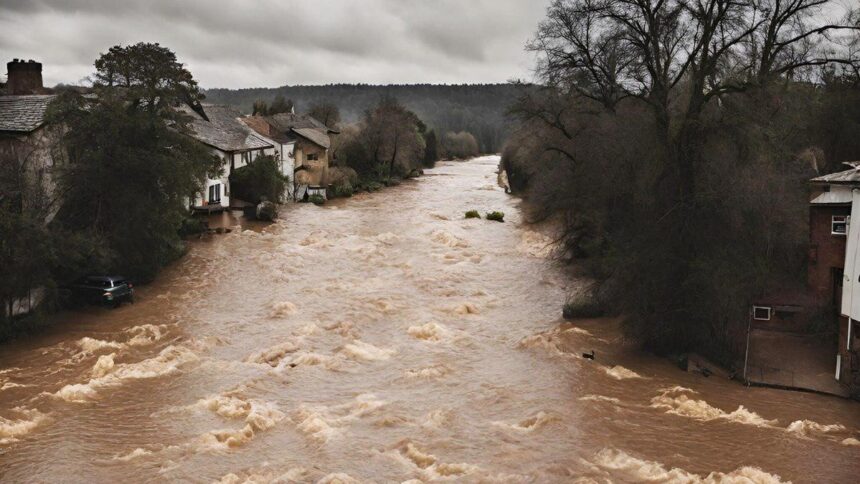Central Europe Hit Hard by Record Rainfall
Central Europe is grappling with severe flooding and escalating death tolls as relentless torrential rain continues to ravage the region. Countries including Austria, the Czech Republic, Poland, and Romania have been hit particularly hard, with forecasts suggesting that Slovakia and Hungary could face similar dire conditions. The heavy rains are attributed to Storm Boris, a low-pressure system originating from northern Italy, which has delivered unprecedented levels of precipitation since Thursday.
❗️Torrential rain in Central Europe: Rivers overflow their banks in several countries, flooding thousands of homes.
The situation is complicated in Poland, the Czech Republic, Lower Austria, Romania and Slovakia. Dead and missing people have been reported, but the number is not… pic.twitter.com/Q38fwnl6qc
— Ignorance, the root and stem of all evil (@ivan_8848) September 15, 2024Widespread Impact Across Multiple Countries
In Romania, the death toll has reached five, while Austria and Poland have each reported one fatality. The Czech Republic is experiencing a particularly severe crisis, with four individuals missing after being swept away by floodwaters. Authorities have issued the highest flood warnings across approximately 100 locations within the country, focusing on two northeastern regions that have seen the heaviest rainfall, including the Jeseniky mountains near the Polish border.
Evacuations and Emergency Responses
In the Czech city of Opava, authorities have evacuated up to 10,000 residents out of a population of around 56,000. Rescuers have utilized boats to reach and transport people to safety from neighborhoods inundated by the swollen Opava River. The situation in Opava is reported to be worse than the historic 1997 floods, often referred to as the “flood of the century.”
Czech Prime Minister Petr Fiala has emphasized that the worst may still be to come, with the government scheduled to convene on Monday to evaluate the damage. President Petr Pavel has expressed cautious optimism, noting that the country has learned from past crises.
In Krnov and Cesky Tesin, thousands more have been evacuated as rivers, including the Oder, have reached extreme levels, forcing widespread relocations. In Ostrava, the regional capital, and surrounding areas, train services are suspended, and traffic disruptions are anticipated in the coming days.
Destruction and Rescue Efforts Intensify
The town of Jesenik and other villages in the Jeseniky mountains have been particularly hard-hit, with severe flooding isolating many communities. Emergency personnel have deployed helicopters to assist in evacuations. Jesenik’s mayor, Zdenka Blistanova, reported extensive damage to homes, bridges, and roads.
Lower Austria has also been severely affected, with authorities declaring the entire state a disaster zone.Tragically, a Tulln firefighter lost his life after tripping over while pumping out a flooded cellar. Austrian Chancellor Karl Nehammer has called out 2,400 soldiers to help with relief efforts in reaction to the disaster.
The Wien River burst its banks in Vienna, resulting in extensive flooding and requiring the evacuation of surrounding residences. The Austrian capital, along with other affected regions, has seen significant disruptions to transportation, including the suspension of rail services and metro lines.

Growing Crisis Across Central and Eastern Europe
The intense rainfall has caused rivers to burst their banks across several countries, with Poland and Romania experiencing some of the worst conditions. In Klodzko county, Poland, rivers reached record levels, prompting the evacuation of 1,600 residents. The flooding has resulted in one confirmed death by drowning in the region.
Poland’s Prime Minister, Donald Tusk, described the situation as “very dramatic,” especially in Klodzko, where river levels exceeded past records set during severe flooding in 1997. Train services have been suspended, and a number of highways and border crossings have been stopped.
In Romania, the death toll has risen to five, with significant damage reported in the southeastern region of Galati. Flooding has destroyed approximately 5,400 homes, and rescue operations have been launched to assist those stranded. Residents in affected villages have described the devastation, with some losing everything to the floods.
Future Risks and European Response
The flooding crisis is expected to continue, with heavy rains predicted to persist throughout the week. In Hungary, forecasts suggest that the Danube River could rise to levels approaching historic highs, prompting preparations for potential flooding in Budapest.
European Union officials, including European Commission President Ursula von der Leyen, have expressed solidarity with the affected countries and offered assistance. Emergency services across the region are working tirelessly to manage the crisis and mitigate further damage.
The catastrophic flooding across Central Europe highlights the severe impact of extreme weather events. As communities grapple with the aftermath of Storm Boris, ongoing support and relief efforts are crucial to addressing the immediate needs of those affected and beginning the long process of recovery.
Read More : Houthi Missile Strikes Central Israel for the First Time: A Deepening Conflict






